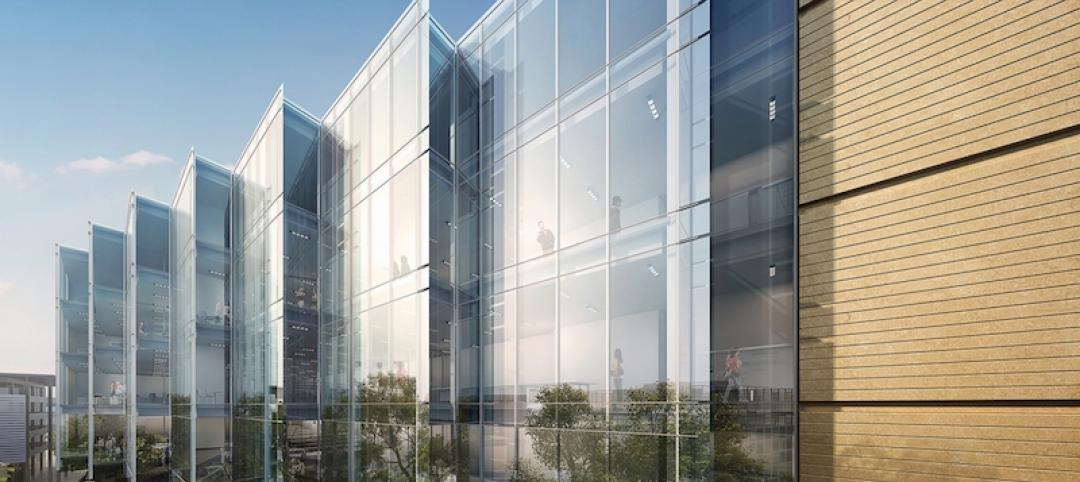Introduced in 2009, the American Institute of Architects (AIA) 2030 Commitment Program, a voluntary initiative for architecture firms and other entities in the built environment to commit their practice to advancing the AIA’s goal of carbon neutral buildings by the year 2030, has produced a report assessing their work.
“There is some very encouraging data in this report that shows how architects are making measurable progress towards reducing the carbon emissions in their design projects,” said AIA Chief Executive Officer, Robert Ivy, FAIA. “But one of the major findings from our research is that in order to maximize the energy efficiency of buildings and to realize our ultimate goal of carbon neutral buildings, energy modeling must become a standard part of the design practice.”
The key findings from a new report, 2030 Commitment 2013 Progress Report, include:
- 401 design projects are meeting the 60% carbon reduction target – a 200% increase from 2012
- 2,464 projects have been accounted for in this report – a 150% increase form 2012
- 1.6 billion gross square feet (GSF) represented in this data – a 9% increase from 2012
- 66% of total GSF using energy modeling to predict operational energy consumption – a 14% increase form 2012
- 19% average firm reduction in Lighting Power Density for interior projects – a increase of 2% from 2012
- 34% average Predicted Energy Use Intensity reduction reported by firms – a decrease of 3% from 2012
- 7% of total GSF meeting the current 60% carbon reduction target – a decrease of 7% from 2012
- 99 firms submitted reports – a 10% decrease from 2012
The decrease in firms reporting data is mainly attributed to the time and effort involved in tracking and entering project data. To address that situation, the AIA has partnered with the Department of Energy to create the 2030 Design Data Exchange to provide a more user friendly interface and allow firms to anonymously research how their projects are predicted to perform compared to similar projects in the AIA 2030 Commitment portfolio. This new reporting tool will be made available in late December 2014 or early January 2015.
For a preview of the functionality of the 2030 Design Data Exchange, click here.
Related Stories
Architects | Jun 14, 2018
Chicago Architecture Center sets Aug. 31 as opening date
The Center is located at 111 E. Wacker Drive.
Multifamily Housing | Jun 13, 2018
Multifamily visionaries: KTGY’s extraordinary expectations
KTGY Architecture + Planning keeps pushing the boundaries of multifamily housing design in the U.S., Asia, and the Middle East.
| Jun 11, 2018
Accelerate Live! talk: Regenerative design — When sustainability is not enough
In this 15-minute talk at BD+C’s Accelerate Live! conference (May 10, 2018, Chicago), HMC’s Eric Carbonnier poses the question: What if buildings could actually rejuvenate ecosystems?
| Jun 11, 2018
Accelerate Live! talk: The smart jobsite — Predictive visual data analytics for proactive project controls
In this 15-minute talk at BD+C’s Accelerate Live! conference (May 10, 2018, Chicago), a trio of experts in predictive visual data analytics presents how design-build giant Clayco has leveraged this technology to achieve production efficiency on several construction sites.
| Jun 11, 2018
Accelerate Live! talk: Design innovation at Adrian Smith + Gordon Gill Architecture
In this 15-minute talk at BD+C’s Accelerate Live! conference (May 10, 2018, Chicago), AS+GG’s Anthony Viola takes us behind the magic curtain to illuminate the firm’s methods for nurturing design innovation.
| Jun 11, 2018
Accelerate Live! talk: ‘AEC can has Blockchains?’
In this 15-minute talk at BD+C’s Accelerate Live! conference (May 10, 2018, Chicago), HOK’s Greg Schleusner explores how the AEC industry could adapt the best ideas from other industries (banking, manufacturing, tech) to modernize inefficient design and construction processes.
| Jun 11, 2018
Accelerate Live! talk: How advanced digital fabrication techniques are driving design innovation
In this 15-minute talk at BD+C’s Accelerate Live! conference (May 10, 2018, Chicago), SOM’s Lucas Tryggestad and Kyle Vansice present the firm’s 3D-printed building project and explore how digital fabrication is pushing design innovation.
| Jun 11, 2018
Accelerate Live! talk: AEC + Data + AI — Poison for some, elixir for others
In this 15-minute talk at BD+C’s Accelerate Live! conference (May 10, 2018, Chicago), predictive analytics expert David Morgareidge offers steps that AE firms can take today if they want to survive AECO digital transformation.
Education Facilities | Jun 8, 2018
Data is driving design for education
In gathering this constant flow of data and recognizing the shifting trends, how can educational institutions make informed choices and smart design decisions that lead to higher efficiency and improved control over capital budgets?
Architects | Jun 6, 2018
Chief of Staff of the Army honors SmithGroupJJR’s Philip Tobey with Outstanding Civilian Service Award
Tobey began his career as a captain and military architect at Headquarters, U.S. Air Force Office of the Surgeon General, with review responsibility for medical projects worldwide.










